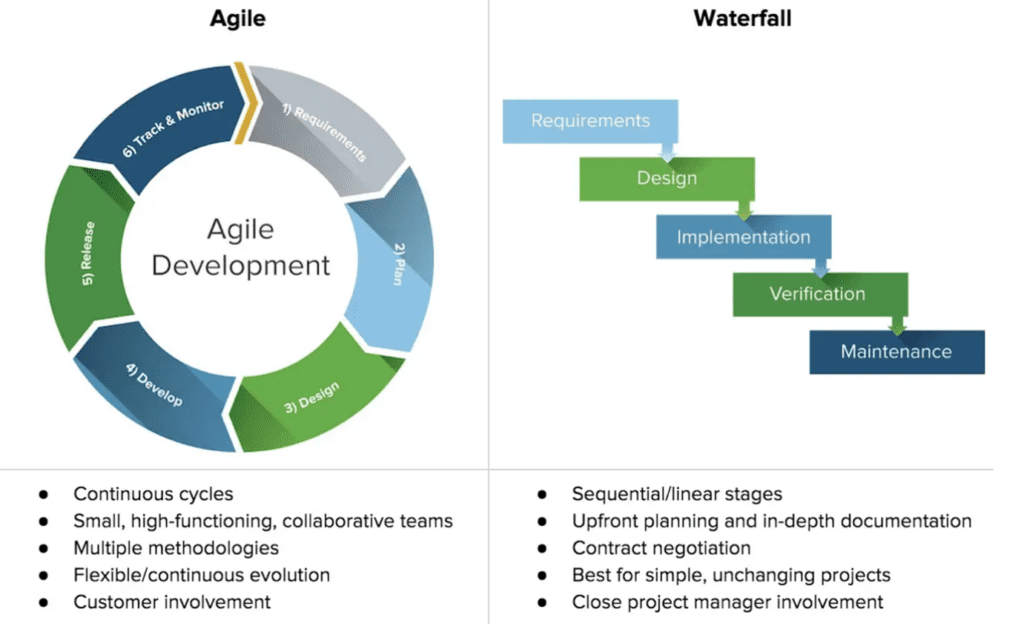What is Agile Software Development?
Agile development is an approach that is a combination of iterative and incremental sequences with a focus on process adaptability and customer satisfaction via a rapid delivery of the working product.
Unlike the more traditional waterfall model previously used in development, where each step is completed sequentially, agile promotes an idea of overlapping phases.

Agile development uses iterative development with incremental releases. Let’s take a look first at what incremental and iterative development methods are.
Iterative process
An iterative process makes progress through successive refinement. The development team develops a first version of the system, knowing that some parts will not be finished. They then iteratively enhance those parts until the product is at the standard they want/need. With each iteration, customer feedback is used and the software is improved by adding more detail.
Let’s take an example of the image below, where the customer isn’t clear and asked the painter to paint a woman in a pastoral setting. The artist will create a sketch, then take the customer feedback to understand and paint the correct picture through multiple iterations:

Incremental process
This involves delivering components of the software in parts. Each increment represents a complete subset of the functionality and is fully coded and tested. If we use the picture example from above again but imagine this time the artist paints it with an incremental process. This time, he knows he needs to paint a picture of the Mona Lisa, and incrementally builds separate parts of the image until it is done.

Agile as an incremental and iterative method
Agile is iterative because it plans for the work of one iterative to be improved upon in subsequent iterations. However, it is also incremental because completed work is delivered throughout the project.

During a development “iteration”, or sprint, where several features are built, some may be iterating to improve, modify or remove existing functionality, while others are incrementally adding new functionality.
Check out some of our upcoming articles on the different Agile terms and features!
Interested in our courses?
Interested in computer engineering? Find out more about all the computer engineering courses we have available by clicking here.
Diploma in Computer Engineering
Diploma in Artificial Intelligence
Alternatively, you can view all our online engineering courses here.
Recent Posts
Dynamic Effects of Linear Motion
Dynamic Effects of linear Motion Variable Acceleration Depending on Time In Engineering, motion is often analysed through quantities like displacement, velocity, and acceleration. While many introductory problems assume constant acceleration (like free-fall near Earth’s surface), real-world motion is frequently more complex. One important case is when acceleration changes with time, this is known as variable […]
How to Calculate Bending Stress
How to Calculate Bending Stress When a beam is subjected to loading acting on a plane passing through the beam’s axis, the beam deforms, or ‘bends’. The beam reacts to the external loads with the internal shear force and bending moments. Bending stress is a fundamental concept in structural engineering and mechanics of materials. It […]
A Quick Guide to Thermal Stress
A Quick Guide to Thermal Stress Thermal expansion and the resulting thermal stress are key concepts in engineering and physics. They describe how materials expand or contract when exposed to temperature changes. Understanding these principles is essential for designing structures and systems that can withstand environmental fluctuations without failure. What is Thermal Expansion? When materials […]

